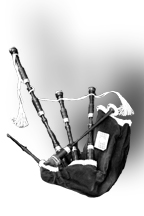Homogeneous country, destinctive music
February 26, 2007
As one of the most homogenous and least ethnically diverse countries in the world, Ireland has had the unique opportunity to shape its music from its rich history and culture. Pulsing rhythms and racing melodies make Irish music designed for dancing, but beyond other typical styles of music, it has transcended to become one of the most characteristic and recognizable forms of music around.
Keeping oral traditions alive, enhancing mythology and folklore and telling a story through the music are all central to the music that was popularized by emigrants in the late 1800’s. Inspiring musical sounds and tunes evolved as a natural escape for communities which passed most of their week engaged in physical agricultural labor. Many Irish musicians were full-blooded Irishmen, took an interest in the music at an early age and were passed down songs from their parents and families.
The first work dedicated exclusively to Irish music was “The Most Celebrated Irish Tunes,” published in 1724 by Turlough Carolan, a harper who included many of his original compositions. When the Great Famine devastated Ireland in 1845, emigration from the rural areas resulted in the loss of musicians and oral traditions that had so greatly impacted its ethnicity. As a result, many American recordings were welcomed as they hadn’t been before, and American music ultimately influenced the Irish songs of the time.
Other countries did not begin to express an interest in Irish music until songs such as “The Last Rose of Summer” and “Danny Boy,” which was written in 1912. Conversely to earlier Irish music, the words of “Danny Boy” were written by an English lawyer and songwriter Fred Weatherly, who then fitted the song a year later to the melody of “The Londonderry Air.” As many recent Irish artists have expressed in their music, Weatherly utilized Irish airs as the base of his song, resulting in the listeners’ connection with emigrants and their history.
Behind the dancing violin and bagpipes, Irish music has managed to capture its sweeping history and oral traditions. Maybe we’re fascinated by Irish music because in the end, we’re all emigrants too.



